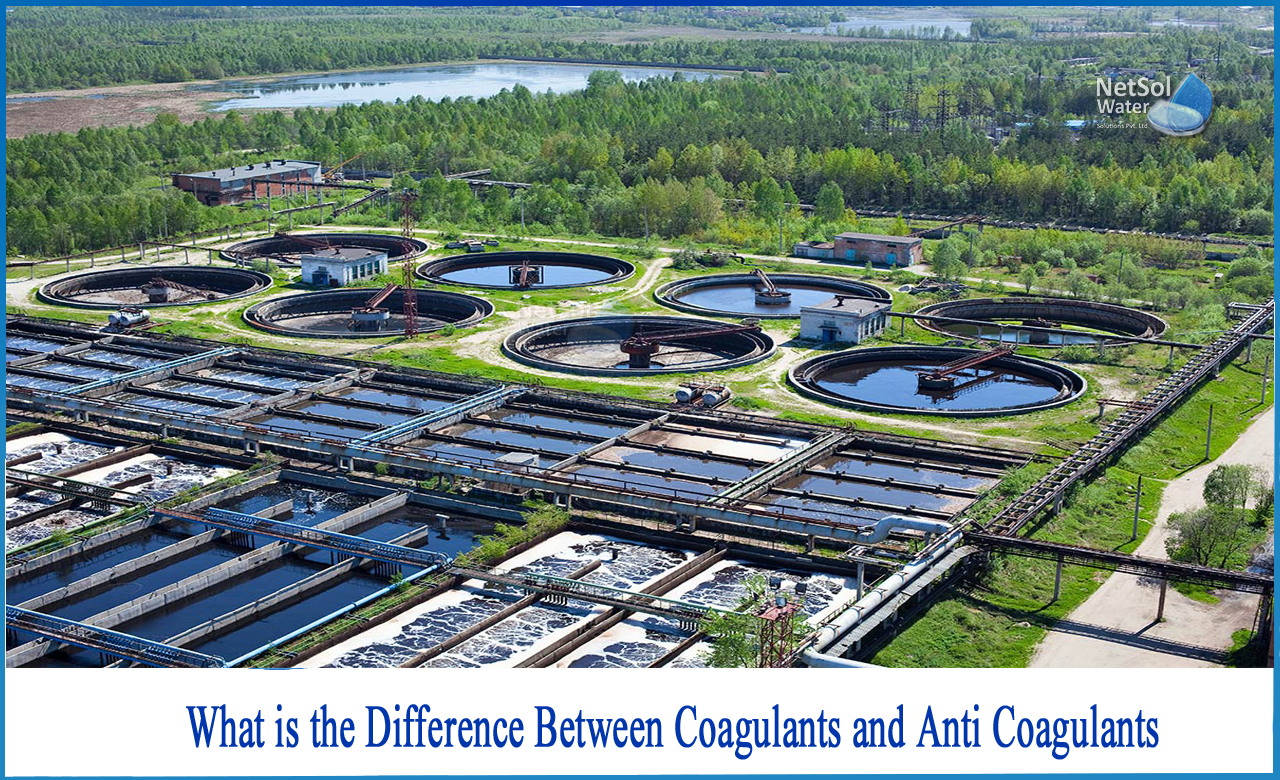What is the difference between Coagulants and Anti coagulants?
Water treatment plants commonly utilize coagulation to deliver safe, clean drinking water to public water users. This procedure is frequently used in conjunction with other processes such as filtration, disinfection, and sedimentation to remove certain toxins from water or wastewater.
Coagulation treatment is often performed before to sedimentation and filtration. A coagulant is introduced into the water or wastewater throughout the procedure, and its positive charge neutralizes the negative charge of the suspended pollutants.
What are coagulation?
Suspended particles join together as a result of neutralization. These particles form clusters known as "flocs" and drop to the bottom of the treatment tank. They may then be filtered out of water more readily. The coagulant is immediately introduced to the water and stirred during this procedure, allowing it to be disseminated throughout the whole sample of water. To remove the settling particles, the coagulated water can be filtered by an ultrafiltration or microfiltration membrane, or a medium filter. Water can also be transported into a settling tank, where heavier particles will settle to the bottom and then be removed.
Phosphorous removal!
The amount of phosphorus removed is determined not only by the coagulant used, but also by the manner of solid-liquid separation used. This is especially relevant in circumstances when very low final phosphorus concentrations are obtained. Effluent suspended particles contribute considerably to total phosphorus concentrations in effluent.
What are Anticoagulants?
Anticoagulants are biocides that are widely employed as pest control agents in agricultural, urban infrastructure, and household applications for rodent control. Anticoagulants are also released into sewage systems and wastewater treatment plants after usage (WWTPs).
WWTP effluents can introduce anticoagulants into receiving waterways, which can harm aquatic creatures and other nontarget species. Activated Sludge Treatment can remove anti-coagulants such as Warfarin, Coumatetralyl, ferulenol, acenocoumarol, flocoumafen, brodifacoum, bromadiolone, and difenacoum. Taking into account the water volumes of each WWTP, daily emissions can be predicted to range from 0.02 to 21.8 g/day.
What do we offer?
If you are looking for the best wastewater treatment plant which includes activated sludge treatment, coagulation, sedimentation, decantation or filtration, then you are at the right place!
Netsol Water is Greater Noida-based leading water & wastewater treatment plant manufacturer. We are industry's most demanding company based on client review and work quality. We are known as best commercial RO plant manufacturers, industrial RO plant manufacturer, sewage treatment plant manufacturer, Water Softener Plant Manufacturers and effluent treatment plant manufacturers. Apart from this 24x7 customer support is our USP. Call on +91-9650608473, or write us at enquiry@netsolwater.com for any support, inquiry or product-purchase related query.



